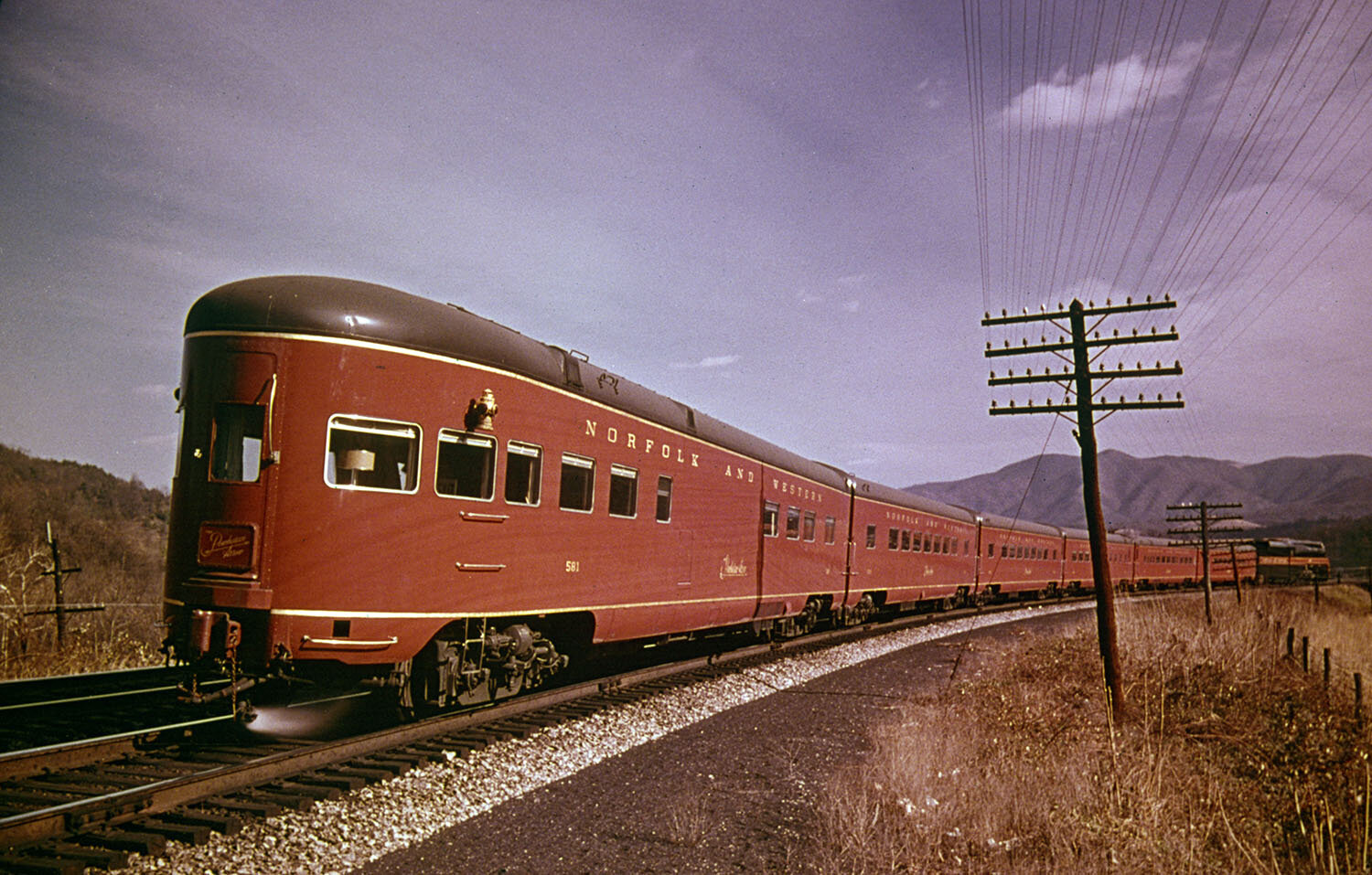Louis Newton Norfolk & Western Railway Films
Image from photographic negative: Norfolk & Western employee plies his craft in the pattern shop, c. 1954-63. Courtesy Norfolk & Western Historical Society. Image subject to copyright laws.
Conservation & Capture
Grant year: 2019
Original format: 8mm film
Digital format: footage captured at 4k resolution
Length/feet or running time: Approx. 1620ft
Circa: 1950-1980
Lab: Pro8mm
Status: Conservation and digital capture completed
Internet Archive: Coming soon
Creative Commons license: Attribution Non-Commercial-NoDerivatives 4.0 International https://creativecommons.org/licenses/by-nc-nd/4.0/
Grantee:
Founded in 1984, the Norfolk & Western Historical Society captures, curates, and shares the histories of the Norfolk & Western Railway and Virginian Railways. The Society is headquartered in Roanoke, Virginia, and boasts a world-wide membership. Its collection of drawings, photographs and documents are stored in a museum-quality archive that is accessible by the general public and historians alike.
Filmmaker
Louis Newton was a lifelong Norfolk & Western Railway employee. Mr. Louis Newton spent his career working on the Norfolk & Western Railway. Recording his long history on the N&W in both print and film, he offers a rare glimpse into the lives of railroaders up and down the line. His films capture the day-to-day operations of one of the country’s premiere railroads — from the mundane to the complex tasks that make a railroad work. Mr. Newton is the author of Rails Remembered, a series of books on the Norfolk & Western Railway. The films in his collection accompany his memories and the history he documented. Louis is now retired and lives in a local nursing home.
Photograph, the observation car on the Powhatan Arrow, a train that ran from Cincinnati to Norfolk and pulled by the famous Norfolk & Western Class J 611, c. 1954-63. Courtesy Northfolk & Western Historical Society. Image subject to copyright laws.
About this Collection
The films in this collection contain scenes of the everyday operations of the Norfolk & Western Railway in Roanoke, Virginia. Captured are the men working in the East End Shops designing, building and maintaining the locomotives and rolling stock; life along the line; men playing baseball in the yard; freight being unloaded from freight cars; coal being carried to the Virginia coast; engineers operating locomotives; firemen firing locomotives; African American railroaders repairing track in the mountains; the Norfolk & Western Railway band playing at a 4th of July picnic; troops leaving for the Korean War via train from Roanoke; kids standing trackside and waving to the engineer and fireman.
These recordings reflect life along the rails as it was. We see the long-forgotten railroaders who weren’t recorded in the history books, but they helped our nation grow and become prosperous. We see life for these men as steam locomotives were retired and diesels took over — leaving thousands without jobs. We see the skills it took to keep the railroad running. These men may not have been educated, but they were smart and they took pride in their crafts and the railroad.
Photograph, A chef works the dining car of a Norfolk & Western passenger train, c. 1954-63. Courtesy Northfolk & Western Historical Society. Image subject to copyright laws.




